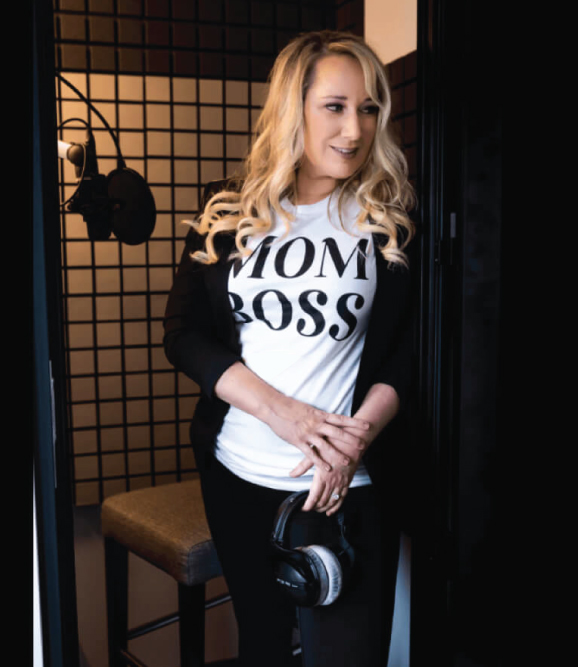In my last two blog posts, I told you the story of how I got to make a promo demo with the all-star promo voice actor and producer, Joe Cipriano. I told you about how I got the opportunity to attend the SOVAS Voice Arts Awards as the first female nominee in four years for the Outstanding Promo Demo Reel category. And I told you about an amazing voice actor, Debbe Hirata, whose work in the industry – especially in promo – has opened up doors for me and other female voice talent. But what I haven’t talked about yet, is… what exactly IS promo voice over?
I’d like to use this post as an opportunity to describe what makes promo different from other kinds of voice over, and discuss some important aspects for voice actors to consider when making a promo.
Whether it’s a movie trailer, a television ad, or a radio promo – the ultimate goal is exactly the same

First and foremost, the goal of a promo is to promote the show, the broadcast, or the network that it’s made for. Promos are typically short and punchy. They don’t have a lot of time to grab the audience’s attention, get them excited about the show that’s being featured, and give them all the important information for when, where, or how to tune in.It’s precisely this goal that sets promo apart in the world of voice over genres. For example, with narration, audiobook voice over, and e-learning, the goal is often to tell the audience a story or to teach them new information. In character voice over, the goal is often to give life to an animation or a video game. While it’s easy to see how these genres differ from promo, it’s less obvious how promo is distinct from commercial voice over. Both of these types of voice over have to sell something, but it’s what they’re selling that makes them unique. Commercials generally promote a specific product or service from a company, while promos advertise a network show or broadcast. And while both commercials and promos can appear on television, radio, or the web, movie trailers and previews are specific to the promo genre, and are not considered to be commercials.
Tell me more…What are the different kinds of promo?
In general, the terms used to describe different applications of promo are loosely defined. They refer, in a broad sense, to elements of the promo including the content, what exactly is being promoted, when the promo is being played in the broadcast, and/or the duration of the promo ad.
Let’s take a look at an example. A common use of promo is to highlight a show or segment that’s coming up soon on the network, something like this: “Next up on Claws, find out who’s really behind all of those gruesome murders.” Depending on when this promo airs – before, during, or after a break from the show that’s being promoted – it might be considered a “teaser,” or a “re-joiner.” Teasers are typically played early in a commercial break, to give the audience something enticing to look forward to, and to discourage them from changing the channel. Re-joiners, on the other hand, are meant to reconnect the audience with the show after a commercial break, reminding them of where things left off.
What if the promo appears at a different time of day than when the show is actually airing? In this case, the promo might be called a “recycler,” and it will probably include more information about how to catch the broadcast. Our earlier example might instead sound like: “Catch an all new episode of Claws, tonight at 9 on TNT.” of promo can include additional elements. For example, if a sponsor is mentioned (“Tonight’s show is brought to you by…”), then the promo may be called a “billboard.”
While this isn’t an exhaustive list, my hope is that it provides a starting point for learning about the different applications of promo voice over. For a voice actor who’s recording a promo, it’s important to keep in mind when and how the promo is going to be used. The specific purpose of the promo – whether it’s a teaser, a recycler, or any other kind – will serve as a crucial guide for the tone, emotions, and many other qualities in the voice over.
The importance of branding in promo voice over
One final (but important!) point is that a promo voice actor needs to be able to capture the network or station’s brand. A promo doesn’t just sell a specific show – it sells an entire network. All of the elements of the promo, and especially the voice over, have to come together to give the audience an accurate sense of what that network offers. The voice actor needs to strike the right tone, and the right style, to make the desired impression. By paying attention to the branding and the goals of the promo, a voice actor can successfully get the job done!
